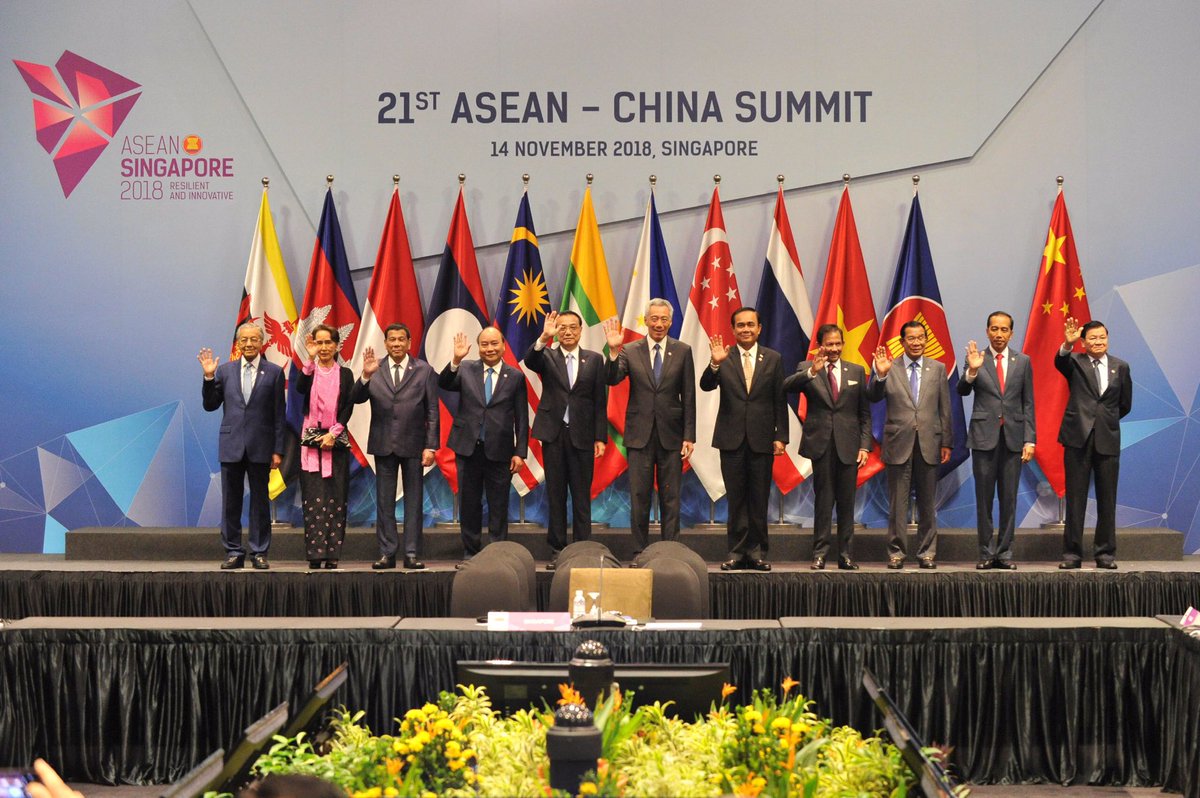2019 forecast: major hurdles for the ASEAN Code of Conduct

The long-awaited Code of Conduct (COC) in the South China Sea has made substantial progress during Singapore’s term as chair of ASEAN, with the inking of the Single Draft Negotiating Text and the planned completion of a first reading in 2019. The latter will most likely be revealed in the 51st ASEAN Foreign Ministers’ Meeting next July.
However, the negotiation may encounter roadblocks under Thailand’s chairmanship. Domestic elections in the year ahead will mean that Thailand (as well as ASEAN powerhouse, Indonesia) may become more inward-focus, and changes in the domestic balance of power may shift their priorities concerning the completion of the first reading.
Beyond this, the current draft contains several complexities which may make agreement difficult, namely the lack of geographic scope, a dispute settlement mechanism, or legal status for the COC. But most importantly, the negotiating text makes explicit demands from China to limit ASEAN’s foreign relations by preventing parties to the text from holding joint military exercises and conducting joint development agreements (JDAs) in the South China Sea with external countries. This sits uncomfortably with ASEAN nations, which seek to balance China by inviting external major powers such as the US, Japan, Russia, India, the UK and France to maintain a presence in the region.
However, the consultative nature of the COC leaves room for negotiation on the involvement of external countries. Expect China to monitor the upcoming ASEAN-US joint military exercise. The character of the exercise is likely to influence Beijing’s willingness to tolerate the presence of a major external power, especially one with which bilateral relations are becoming increasingly adversarial.
In terms of JDAs, China is engaging in a carrot-and-stick approach with dispute claimants, by luring them with attractive economic benefits and threatening military retaliation against those that cooperate with external powers. The latter tactic worked recently in deterring Spanish-Vietnamese joint oil exploration. But it is unlikely to affect Vietnam’s strategic partnership with India, which has expanded considerably in recent years.
In terms of carrots, the outcome is uncertain. Past attempts with Vietnam have failed due to China’s uncompromising demand for respect for its sovereign and jurisdictional rights. It will be important to keep watch on the development surrounding China’s Memorandum of Understanding with the Philippines and its deal with Brunei. While a breakthrough has been reached, it remains uncertain how their agreements with Beijing will address the jurisdictional rights of joint explorations in the South China Sea.
Tommy is a member of the East and South East Asia team. He covers strategic and crisis developments pertaining to the use of force, with a concentration on flashpoints in East Asia.


